WHY WE MAKE THESE PANS

Our story started, like all the good stories from the South, with a grandmother. Mine, Estee Hilton Rudd, was a butcher and the owner of a meat market in Charleston, South Carolina. That's the front porch on her house in the photo above, the oldest cypress log house in Berkeley County. It was her black iron pan I cracked in September of 2013. I was determined to use her skillet again, and then when I couldn’t repair it, I was just as determined to make new pans that I could pass on.
It started, certainly not as a business, but as a question: "How do you cast iron as thin and smooth as those great American foundries once did in the late 1800s?"
Cast iron of the past became our inspiration when we decided to make new American cast iron. But I didn't want to make a copy; I wanted to make something for today's chef - something that was exceptional. I wanted to make cookware that focused on the best uses of the thermodynamic properties of cast iron; braising in the oven, searing at high heat, cooking on the latest magnetic induction ranges – all of these – and still usable on an open fire.
The requirements for our new pans seemed simple: cast thin for lighter weight, polish them smooth for easy cleanup, and make them in America.
But it was far from simple, in fact, it was mostly a failure. We quickly exceeded the tolerance range of most machine casting processes. We went through series after series of prototyping in four separate foundry processes.

The results were disappointing. The prototypes were too rough. They were far
too heavy, and I absolutely refused to grind or mill them down which would leave machining marks in the cooking surface.
I would not compromise with the foundry engineers, or my partners, to the limited foundry processes that were available. Our cookware would meet or exceed our benchmark specifications or it wouldn't be produced. And it almost wasn't.
Here you see the results of three years of testing, dozens of prototypes, the results of the dedicated efforts of skilled American foundrymen to solve the challenges of casting iron this thin and this smooth.

Dennis Powell FOUNDER


